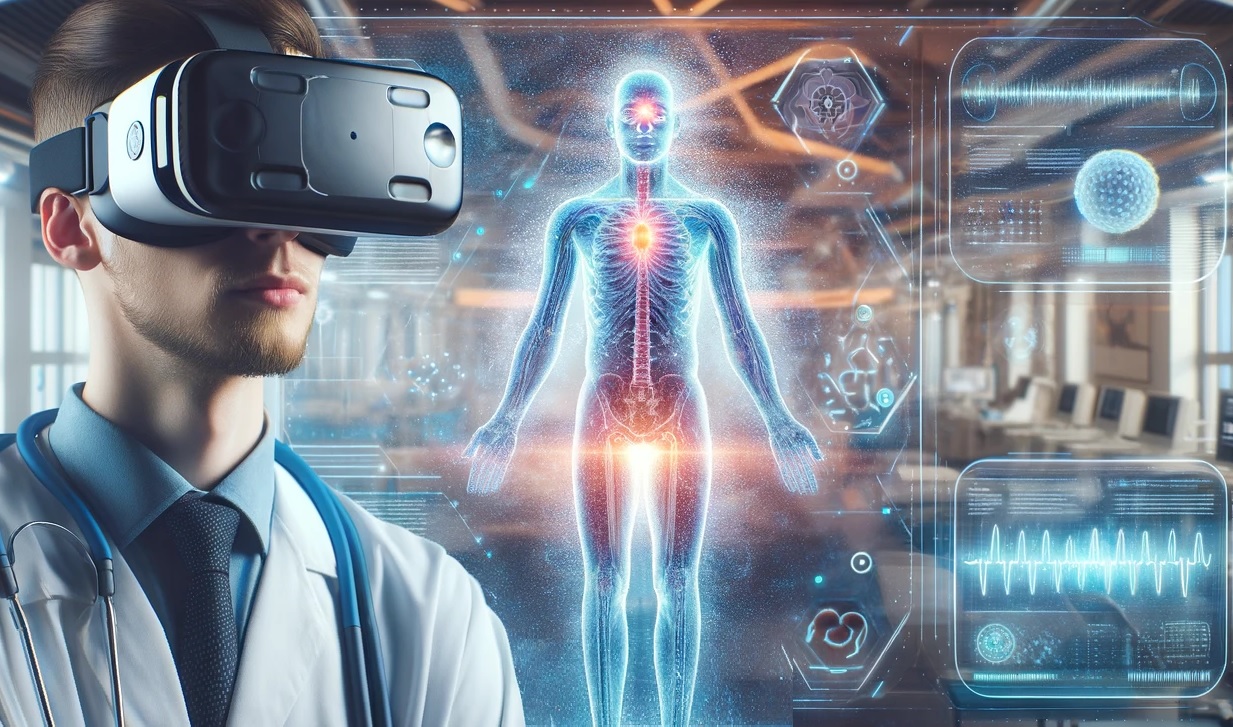The National Health Service (NHS) in the United Kingdom is embracing cutting-edge virtual reality (VR) technology to enhance the training of its medical staff and students, particularly in identifying and treating sepsis. This innovative approach collaborates with the Great Western Hospitals NHS Foundation Trust and Goggleminds, a leading training platform.
By utilizing immersive VR headsets, medical professionals can experience realistic training scenarios that mimic the process of treating sepsis patients. Dr. Ron Daniels, the founder of the UK Sepsis Trust, emphasized the importance of this type of training, stating, “Training which sticks in the mind saves lives.” This statement underscores the potential of VR technology to leave a lasting impact on the trainees, ultimately improving patient outcomes.
Sepsis, a condition where the body’s immune system overreacts to an infection, causing harm to its own tissues and organs, is notoriously challenging to diagnose, especially under the pressures of a busy NHS environment. Dr Daniels highlighted this difficulty, noting the challenge health professionals face in spotting sepsis amidst their demanding duties.
The introduction of VR technology in medical training is expected to revolutionize how doctors are trained. It offers the flexibility to conduct training outside traditional hospital settings and in smaller groups, aiming to boost efficiency in the process.
The University of Bath has been instrumental in researching how VR can be used to provide engaging and effective learning experiences for healthcare students. Professor Richard Joiner from the university’s Department of Psychology pointed out the critical nature of responding to sepsis and anaphylaxis in healthcare settings. He explained that the new VR simulation enables doctors to gain experiential training in a risk-free and realistic environment, which is crucial for patient safety.
Aziz Naji, CEO and founder of Goggleminds, sees vast potential in this technology, not just for sepsis training but for simulating various aspects of medical training. He envisions this as a globally beneficial technology, saying, “We really see this as an international technology that everybody can benefit from.”
In summary, the NHS’s partnership with Goggleminds to implement VR technology in medical training represents a significant advancement in healthcare education. This innovative approach offers a more engaging, efficient, and realistic training experience, particularly in the critical area of sepsis diagnosis and treatment. It stands as a testament to the evolving medical training landscape and technology’s potential to enhance healthcare delivery.
Do check out the original news story over on the BBC news website – https://www.bbc.co.uk/news/uk-england-wiltshire-68032632
